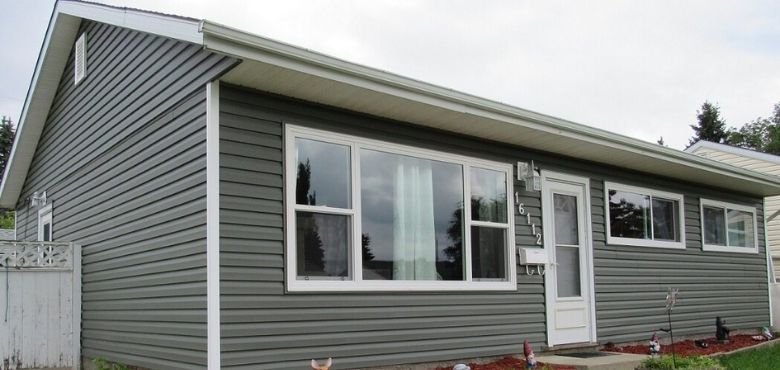When it comes to choosing the right siding for your home, it’s a big decision. Many factors, such as durability, cost, and appearance, must be considered. Two popular options are aluminum vs vinyl siding. Each has its advantages and disadvantages. People know the aluminum option as a long-lasting & money-saving choice.
Vinyl siding is another popular option. It is also durable and low-maintenance. Both aluminum and vinyl siding are good options for your home. The best choice for you depends on your budget, lifestyle, and personal preferences. By the end of this post, you will better understand which siding is right for you.

Its sleek, modern appearance and resistance to the elements make it an excellent option for various architectural styles. However, like any building material, it also has advantages and disadvantages mentioned below:
Check out the pros below:
Do not decide anything before having a look at the cons below:

If you remember the days of painting and repainting wooden siding, you must know that vinyl has changed the game in vinyl vs aluminum siding. Its durability, ease of maintenance, and attractive appearance have made it a game-changer in the home improvement industry.
Explore the benefits, including its reasonability, longevity, low maintenance, variety of styles, and energy efficiency.
Know about the drawbacks of vinyl siding, such as appearance, expansion and contraction, fading, environmental concerns, and limited lifespan.

By carefully considering the factors below, you can select the best siding material for your home and enjoy its benefits for years. Here are some key factors to consider when selecting aluminum vs vinyl siding:
View its durability, maintenance requirements, cost, and aesthetics. Aluminum and fiber cement are known for their durability, while vinyl siding offers low maintenance. Compare the initial and long-term costs to determine the most budget-friendly option. Finally, select a siding material that complements your home’s style and sweetens its appeal.
When choosing siding, consider your home’s architectural style and how the siding will complement its other features. Materials like wood or vinyl can create a timeless aesthetic for traditional homes, while modern homes might prefer the sleek look of metal or fiber cement. The color of your siding should also harmonize with your home’s roof, windows, and doors. The symmetrical color scheme can improve your home’s appeal.

While selecting siding, consider its energy-saving capability. Materials like vinyl can provide better insulation than others, helping you save on heating and cooling costs. Proper installation is also crucial to prevent air leaks, which can increase energy consumption. To protect your investment, check the manufacturer’s warranty for the siding material you choose. A longer warranty offers peace of mind and protection against possible defects.
Review the climate in your area when choosing siding. If you live in a region with harsh winters, select a material that can withstand freezing temperatures and heavy snowfall. High humidity can also impact siding durability. Opt for a material immune to moisture and mold, mainly if you live in a humid climate.
So, which siding is right for you, aluminum vs vinyl siding? Both have pros and cons. Aluminum is long-lasting and low-maintenance, but it can get more expensive and may not offer as many color options. Vinyl is affordable and easy to install, but it can be less durable and may fade over time. Ultimately, the best siding for you will depend on your budget, lifestyle, and preferences. By carefully considering all the factors above, you can select the siding material that will best suit your home and lifestyle.
Overall, aluminum siding is more durable, fireproof, waterproof, and resistant to mold and mildew.
They stopped because it has lost popularity due to its design limitations. Unlike other materials that mimic natural wood, aluminum lacks this flexibility, making it less attractive to many.
The initial cost of aluminum windows is generally greater than that of vinyl windows.
Aluminum is generally stronger than vinyl, making it more invulnerable to impacts and capable of fighting various climates.
Vinyl usually saves more energy than aluminum siding.
Leave a Reply